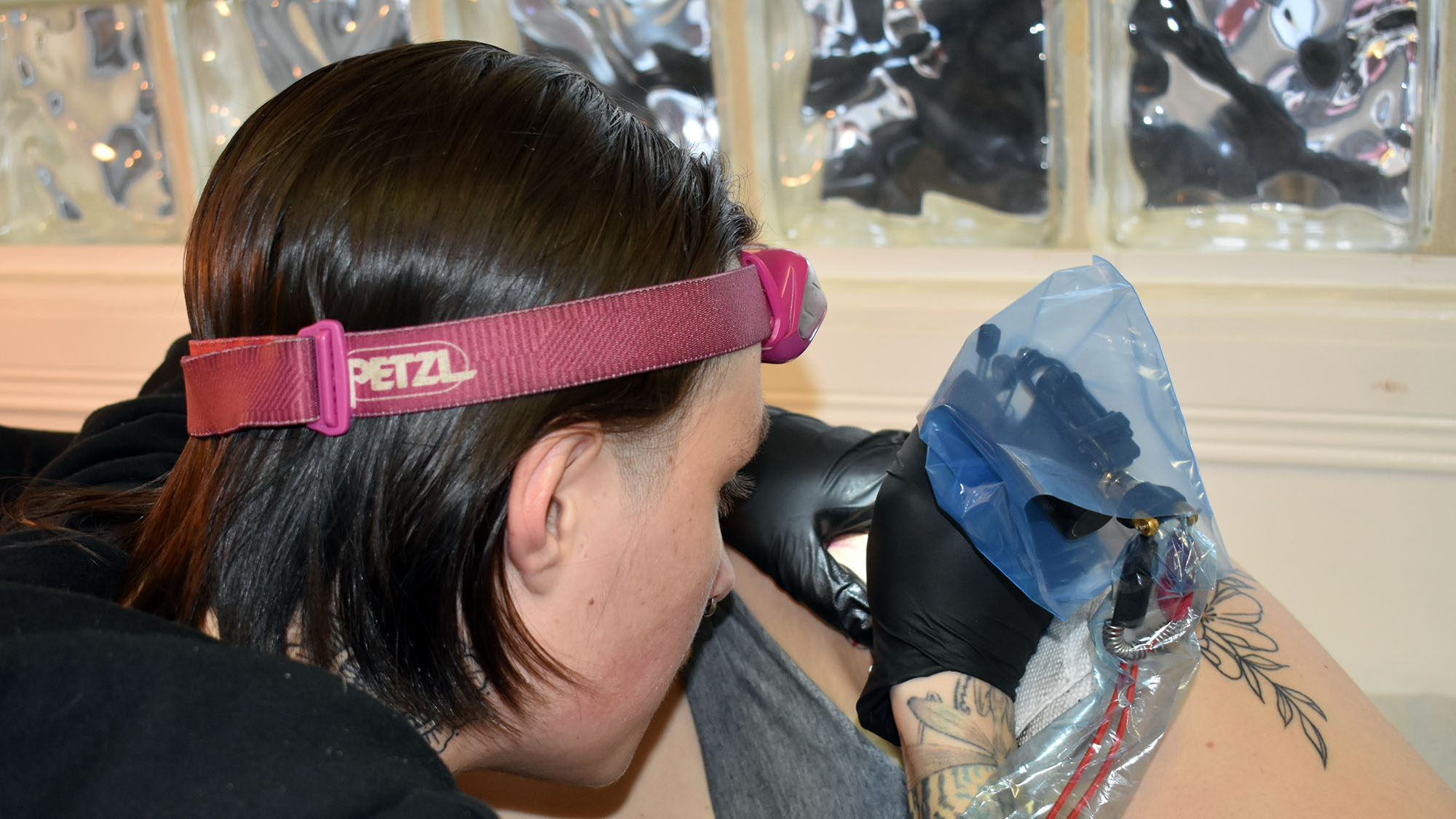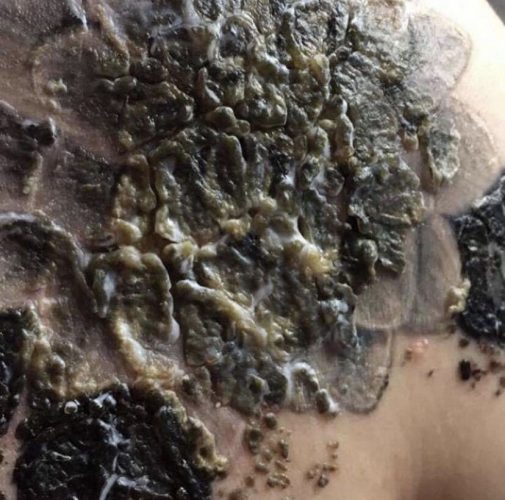Tattoos
In permanent ink: Nova Scotia finally regulating tattoos
There will be consequences for businesses and artists who don't meet standards

caption
Gabe David works on a tattoo for a client at Outlaw Country Tattoo.It was only after Leanne Boudreau’s second tattoo left her with permanent scars that she learned Nova Scotia doesn’t regulate the industry.
That will change when the Safe Body Art Act comes into effect on Friday.
“It was a pretty wild experience,” said Boudreau about her June 2018 appointment at a shop outside of Halifax.
Boudreau, who got a tattoo of a flower from her shoulder down to her breast, said the artists were a little “creepy,” but she brushed it off thinking “maybe they just had a long day.” Related stories
“I watched them put on the needle, I knew it was a clean needle. I always want to double check these things because I didn’t want to get an infection,” said Boudreau.
But she did get an infection.
The artist told her to put vitamin e oil on the tattoo, not moisturizer, and leave the bandage on for seven days.
Within 24 hours she knew something was wrong.
She took the bandage off and applied the oil. Messaging the artists, she told them she was in pain. They told her to continue putting the oil on it.
“It got infected to the point where I probably had a one centimeter thick crust,” she said. “It was hard; it was breaking up and it was gross.”

caption
Leanne Boudreau’s flower tattoo got infected.She went back to the shop. They put another bandage on it and told her to keep it there. She did, but it didn’t help.
She went back a third time and finally it healed, but not without damage. She had blisters on the tattoo until August.
“I still have scarring from it,” she said. “I got no money back and a messed-up arm from it. I learned from my mistakes and I know never to go back there.”
After looking into it, she found she wasn’t alone. She joined a Facebook group, finding 23 other women who also had issues with the shop.
New rules
Seven years after the Safe Body Art Act bill was first proposed in Nova Scotia, it was proclaimed on March 6, 2018. The act oversees the standards for safe practices and products for tattoos and piercings in Nova Scotia.
In developing the regulations, the responsibility moved from the Department of Health to the Department of Environment.
It took a long time because this transition “meant a little more work,” said Adèle Poirier, a communications advisor with the Nova Scotia Department of Environment.
While the Department of Health and Wellness is responsible for the act’s standards, the Department of Environment will enforce it.
Permits will be required for tattoo artists. Permanent and mobile facilities will require a Class 1 permit that costs $195 and is renewed every 10 years. A Class 2 permit will be required for temporary events up to 14 days and costs $30.
Under these regulations, tattoo business will need proper lighting, a janitorial sink, a handwash station, a washroom and proper and sterile instrument storage. Permits must be displayed where clients can see them.
A tattoo artist or shop owner must keep a detailed record of every tattoo or procedure they perform, any health risks and aftercare instructions. They are also required to document the chance of exposure to blood or bodily fluids and recommend and make sure their client seeks medical attention.
A company found guilty of violating the act or its regulations can receive a fine of up to $10,000. For a second offence they can pay up to $50,000. An individual offender can pay up to $2,000 and receive jail time. For a second offence they will receive a $10,000 fine and jail time.
Artist opinion
Tattoo artist Gabe David opened Outlaw Country Tattoo at Clifton and North Streets in October. The LGBTQ+ friendly shop is “lucky in a sense,” to be newly opened and come under these standards.
“The majority of shops already operate in this fashion,” said David, who has been a tattoo artist for two years.
Everyone is just tweaking their operations to make sure they’re up to par, said David.
“You know everybody’s installing their secondary sink or everybody’s putting their cardboard boxes in Tupperware containers. Just little things like that.”
David said she knows of artists like the ones Boudreau ran into, but most businesses won’t have an issue transitioning into these regulations.
“You know the thing about being sanitary is that you know there’s not really any such thing as overdoing it,” said David. “There’s definitely quite a number of artists who are passionate about doing as much as they possibly can.”
Compassion
A fair, clear warning should come for those operating at their home, a private studio or not in complying with the standards, said David, instead of immediately having someone show up at their door fining and shutting them down.
“I think it’s what’s important is to get the word out there for people who maybe don’t have access to shops, or don’t have access to the resources it takes to you know operate under these standards,” she said.
“It’s important to let people know you know out there, who might not be in the tattoo community, that they’re at risk right now.”

